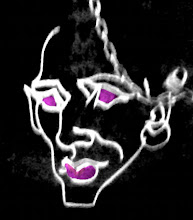The Conquest of America
In August, 1949, American poet Archibald MacLeish had an essay published in The Atlantic that reminded readers of the true revolutionary force in the world, one that had sprung up in the late eighteenth century and grown much for over more than a century in the United States of America. MacLeish was the US representative at the foundation of UNESCO, as well as the inaugural holder of Assistant Secretary of State for Public Affairs before coming under fire by J. Edgar Hoover and Joseph McCarthy for his former association with left-wing writers and organizations. The essay, entitled The Conquest of America, warned about the denial of the true crisis — of shifts in civilization and culture — in favor of a fear-driven crisis, which was but one consequence of the cultural shift of community-based life to an envisioned liberation of the individual as participant in a new kind of democracy anchored by the Constitution of the Republic.
The Atlantic; vol. 184, no. 2; pp. 17-22.
Never in the history of the world was one people as completely dominated, intellectually and morally, by another as the people of the United States by the people of Russia in the four years from 1946 through 1949. American foreign policy was a mirror image of Russian foreign policy: whatever the Russians did, we did in reverse. American domestic politics were conducted under a kind of upside-down Russian veto: no man could be elected to public office unless he was on record as detesting the Russians, and no proposal could be enacted, from a peace plan at one end to a military budget at the other, unless it could be demonstrated that the Russians wouldn't like it. American political controversy was controversy sung to the Russian tune; left-wing movements attacked right-wing movements not on American issues but on Russian issues, and right-wing movements replied with the same arguments turned round about.
All this took place not in a time of national weakness or decay but precisely at the moment when the United States, having engineered a tremendous triumph and fought its way to a brilliant victory in the greatest of all wars, had reached the highest point of world power ever achieved by a single state.
Communism is not a force which moves with that [revolutionary] current. On the contrary, Communism, like its authoritarian rivals, seeks to cure the sickness of the condition of man by turning back against the current of human evolution, to that decaying city of hierarchical and disciplined order in which mankind, at certain sacrifices of manhood, may find seclusion and retreat.
The one force which can claim the revolutionary title in the world we live in [...] is the force that Jefferson put into words. But though the hope has been betrayed and forgotten in one generation and another, the living seed remains: the seed remains and grows. It is this seed, this influence, this force, this force of revolution, which is the living thing in the Republic. Without it, the United States is so much land, so many people, such an accumulation of wealth. With it the United States is a stage upon the journey of mankind.
The Atlantic; vol. 184, no. 2; pp. 17-22.
Labels: 1949, Archibald MacLeish, communism, neoconservatives, observations, premonition, The Conquest of America


0 Comments:
Post a Comment
<< Home